
October 2019 Critical Thinking Academy
for Educators and Administrators
Placing Critical Thinking at the Heart of Teaching and Learning:
Getting Beyond the Superficial
Plus: Advanced Seminar for Returning Delegates
A Two-Part Academy; Attend Two Days or All Four Days
312 N. Main St.
Bentonville, AR 72712
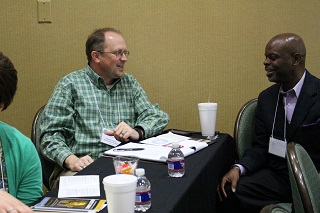 This workshop will focus on the fundamentals of critical thinking. This session will lay the foundation for teaching critical thinking through your subject(s). It will introduce you to the essential conceptual sets in critical thinking – namely, how to analyze thinking, how to assess it, and how to develop and foster intellectual virtues or dispositions.
This workshop will focus on the fundamentals of critical thinking. This session will lay the foundation for teaching critical thinking through your subject(s). It will introduce you to the essential conceptual sets in critical thinking – namely, how to analyze thinking, how to assess it, and how to develop and foster intellectual virtues or dispositions.
One conceptual set that we will focus on is the elements of reasoning, or parts of thinking. The elements or parts of reasoning are those essential dimensions of reasoning that are present whenever and wherever reasoning occurs, independent of whether we are reasoning well or poorly. Working together, these elements shape reasoning and provide a general logic to the use of thought. They are presupposed in every subject, discipline, and domain of human thought.
A second conceptual set we will focus on is universal intellectual standards. One of the fundamentals of critical thinking is the ability to assess reasoning. To be skilled at assessment requires that we consistently take apart thinking and examine the parts with respect to standards of quality. We do this using criteria based on clarity, accuracy, precision, relevance, depth, breadth, logicalness, and significance. Critical thinkers recognize that, whenever they are reasoning, they reason to some purpose (an element of reasoning). Implicit goals are built into their thought processes. But their reasoning is improved when they are clear (clarity being an intellectual standard) about that purpose or goal. Similarly, to reason well, they need to know that, consciously or unconsciously, they are using relevant (relevance being an intellectual standard) information (another element of reasoning) in their in thinking. Furthermore, their reasoning improves if and when they make sure that the information they are using is accurate (accuracy being another intellectual standard).
A third conceptual set in critical thinking is intellectual virtues or traits. Critical thinking does not entail 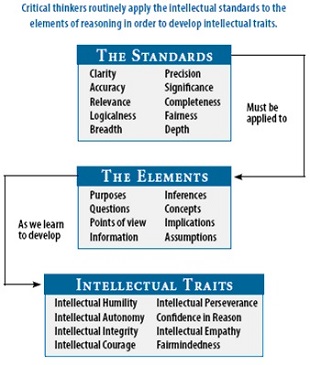 merely intellectual skills; it is a way of orienting oneself in the world. It is a way of approaching problems that differs significantly from that which is typical in human life. People may have critical thinking skills and abilities, and yet still be unable to enter viewpoints with which they disagree. They may have critical thinking abilities, and yet still be unable to analyze the beliefs that guide their behavior. They may have critical thinking abilities, and yet be unable to distinguish between what they know and what they don’t know, to persevere through difficult problems and issues, to think fairmindedly, or to stand alone against the crowd. Thus, in developing as a thinker, and fostering critical thinking abilities in others, it is important to develop intellectual virtues – the virtues of fairmindedness, intellectual humility, intellectual perseverance, intellectual courage, intellectual empathy, intellectual autonomy, intellectual integrity, and confidence in reason.
merely intellectual skills; it is a way of orienting oneself in the world. It is a way of approaching problems that differs significantly from that which is typical in human life. People may have critical thinking skills and abilities, and yet still be unable to enter viewpoints with which they disagree. They may have critical thinking abilities, and yet still be unable to analyze the beliefs that guide their behavior. They may have critical thinking abilities, and yet be unable to distinguish between what they know and what they don’t know, to persevere through difficult problems and issues, to think fairmindedly, or to stand alone against the crowd. Thus, in developing as a thinker, and fostering critical thinking abilities in others, it is important to develop intellectual virtues – the virtues of fairmindedness, intellectual humility, intellectual perseverance, intellectual courage, intellectual empathy, intellectual autonomy, intellectual integrity, and confidence in reason.
A process will be modeled throughout this workshop that will exemplify the essential ingredients of teaching for ownership: modeling thinking, requiring thinking, and assessing thinking.
In this session, we will focus on the differences between students whose approach to learning is “deep” and those whose approach is “on the surface.” We will emphasize ways in which we can help students see the difference between the two as they move increasingly toward “deep” learning of content. We will explore how the tools of critical thinking can be used to move students from a surface to a deep approach.
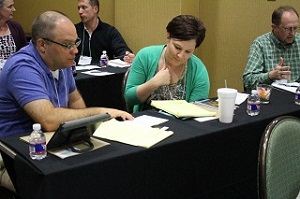 To study well and learn any subject is to learn how to think with discipline within that subject. It is to learn to think within its logic, or, to:
To study well and learn any subject is to learn how to think with discipline within that subject. It is to learn to think within its logic, or, to:
When we take a deep approach to teaching and learning, we understand the relationship between content and thinking; we realize that all subjects and disciplines have a fundamental logic defined by the structures of thought embedded in them. Therefore, to lay bare a subject’s most fundamental logic, we encourage students to ask, and reason through, these questions:
These questions can be contextualized for any given class day, chapter in the textbook, and dimension of study. For example, on any given day, students should be encouraged to ask one or more of the following questions:
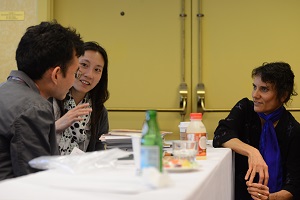
To become a skilled learner is to become a self-directed, self-disciplined, self-monitored, and self-corrective thinker who has given assent to rigorous standards of thought and mindful command of their use. Skilled learning of a discipline requires that one respect the power of it, as well as its, and one’s own, historical and human limitations. This workshop will offer strategies for helping students begin to take learning seriously – using reading, writing, discussions, and feedback as primary vehicles. It focuses on the idea that substantive teaching and learning can occur only when students take ownership of the most basic principles and concepts of the subject.
Participants who have attended our conferences or academies in the past may sign up for one or both sessions of the Advanced Seminar (these options are available during online registration process), which will be based upon the Oxford Tutorial Approach ( click here for our description and modification of this approach). Participants seeking Certification in the Paul-Elder Approach to Critical Thinking , and who have met the prerequisites, are able to complete the certification process during this Advanced Seminar.
If you require a partial scholarship to attend and would like to apply for one, please visit this page for the application form and instruction.
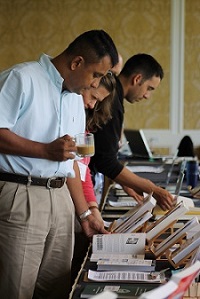 In this Seminar, we will focus on the following topics:
In this Seminar, we will focus on the following topics:
1. Going Beyond Critical Thinking Skills: How Can You Help Students Develop Intellectual Character? (Days 1-2)
2. Why are the Barriers to Critical Thinking – Namely, Egocentric and Sociocentric Thought – So Important to a Rich Conception of Critical Thinking? (Days 1-2)
3. On the Instructional Design of Richard Paul and Linda Elder (Days 3-4)
4. Working Through Classic Readings which Illuminate Critical Thinking (Days 3-4)
5. Exploring Your Deeper Questions (All Days, 1-4)
Our advanced group will join the newer participants for a few sessions and activities throughout the four days. This helps everyone develop at a higher level during the time we are together and makes for more varied discussions.
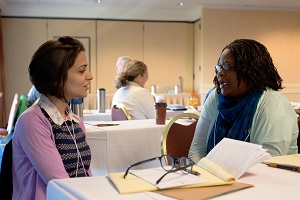 For almost 40 years, The Foundation for Critical Thinking has taken the lead in advancing a robust, integrated, comprehensive conception of critical thinking throughout education and society. Consequently, the Paul-Elder Framework for Critical Thinking™ has been implemented by educators at all levels and in all fields of study in the U.S. and abroad.
For almost 40 years, The Foundation for Critical Thinking has taken the lead in advancing a robust, integrated, comprehensive conception of critical thinking throughout education and society. Consequently, the Paul-Elder Framework for Critical Thinking™ has been implemented by educators at all levels and in all fields of study in the U.S. and abroad.
We invite all educators, administrators, professionals, and government officials to join us at the October 2019 Critical Thinking Educators and Administrators Academy. This event will be led by two leading international authorities on critical thinking: Dr. Linda Elder, Senior Fellow and educational psychologist, and Dr. Gerald Nosich, Senior Fellow and professor emeritus.
The Academy will entail four days of interactive workshops which will enhance your understanding of critical thinking and how to best foster it in your courses and at your institutions. The academy will be followed a few weeks later by two voluntary, one-hour online study groups (with dates and times to be announced). The follow-up study groups are designed to help you continue advancing in critical thinking by developing your instructional design plans and processes under our direction. Certificates of Completion will be available at the end of the process.
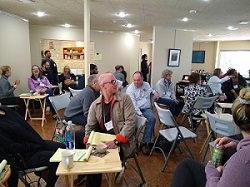 The Academy will be held in a retreat setting in beautiful Northwest Arkansas, near the internationally-renowned Crystal Bridges Museum and world-class biking trails. Participants will stay in local hotels and rentals of their choosing.
The Academy will be held in a retreat setting in beautiful Northwest Arkansas, near the internationally-renowned Crystal Bridges Museum and world-class biking trails. Participants will stay in local hotels and rentals of their choosing.
This Academy is designed for teachers, faculty, and administrators as well as trainers in business, government, and the military working to bring substantive critical thinking across their respective institutions or into specific departments and divisions.
The Advanced Seminar will be for those who have been studying in the Paul-Elder Approach to Critical Thinking, and who want to advance their understandings of the theory and application of critical thinking for use in their teaching, their training, or their work in administration. Those who have met the Foundation for Critical Thinking prerequisites for certification in the Paul-Elder Approach can achieve certification at this academy, should they meet the requirements and apply for certification according to our certification guidelines.
Don’t miss this opportunity to work with world-class authorities on critical thinking in a small retreat setting.
Those who will benefit from this Academy include:
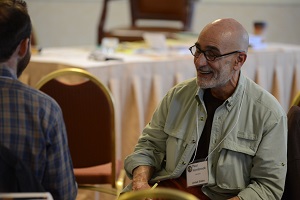 standards in teaching and learning, as well as how to foster understanding of critical thinking standards in student thinking.
standards in teaching and learning, as well as how to foster understanding of critical thinking standards in student thinking. 
| Registration Options | Cost Per Person | |||
| EVENT OPTIONS: If Paid by July 15, 2019 | 1 person | 3 or more people | ||
| Standard Academy: Oct . 10-11 (First 2 Days) | $649 | $549 | ||
| Standard Academy: Oct . 12-13 (Last 2 Days) | $649 | $549 | ||
| Standard Academy: Oct. 10-13 (All 4 Days) | $1,190 | $949 | ||
| Advanced Seminar: Oct . 10-11 (First 2 Days) | $649 | $549 | ||
| Advanced Seminar: Oct . 12-13 (Last 2 Days) | $649 | $549 | ||
| Advanced Seminar: Oct. 10-13 (All 4 Days) | $1,190 | $949 | ||
| EVENT OPTIONS: If Paid AFTER July 15, 2019 | 1 person | 3 or more people | ||
| Standard Academy: Oct . 10-11 (First 2 Days) | $769 | $669 | ||
| Standard Academy: Oct . 12-13 (Last 2 Days) | $769 | $669 | ||
| Standard Academy: Oct. 10-13 (All 4 Days) | $1,380 | $1,129 | ||
| Advanced Seminar: Oct . 10-11 (First 2 Days) | $769 | $669 | ||
| Advanced Seminar: Oct . 12-13 (Last 2 Days) | $769 | $669 | ||
| Advanced Seminar: Oct. 10-13 (All 4 Days) | $1,380 | $1,129 | ||
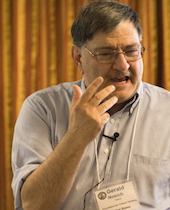
Dr. Gerald Nosich
Dr. Gerald Nosich is a Senior Fellow at the Foundation for Critical Thinking and a prominent authority on critical thinking. He has given more than 150 national and international workshops on critical thinking, has worked with the U.S. Department of Education on a project for the National Assessment of Higher Order Thinking skills, has served as the Assistant Director of the Center for Critical Thinking, and has been featured as a Noted Scholar at the University of British Columbia. Dr. Nosich is Professor Emeritus at SUNY Buffalo State and the University of New Orleans, and is the author of two books including Learning to Think Things Through: A Guide to Critical Thinking Across the Curriculum .

Dr. Linda Elder
Dr. Linda Elder is an educational psychologist and a prominent authority on critical thinking. She is President and Senior Fellow of the Foundation for Critical Thinking, has taught psychology and critical thinking at the college level, and has given presentations to more than 50,000 educators. She has coauthored four books and 24 Thinker's Guides on critical thinking. Concerned with understanding and illuminating the relationship between thinking and affect, and the barriers to critical thinking, Dr. Elder has placed these issues at the center of her thinking.
